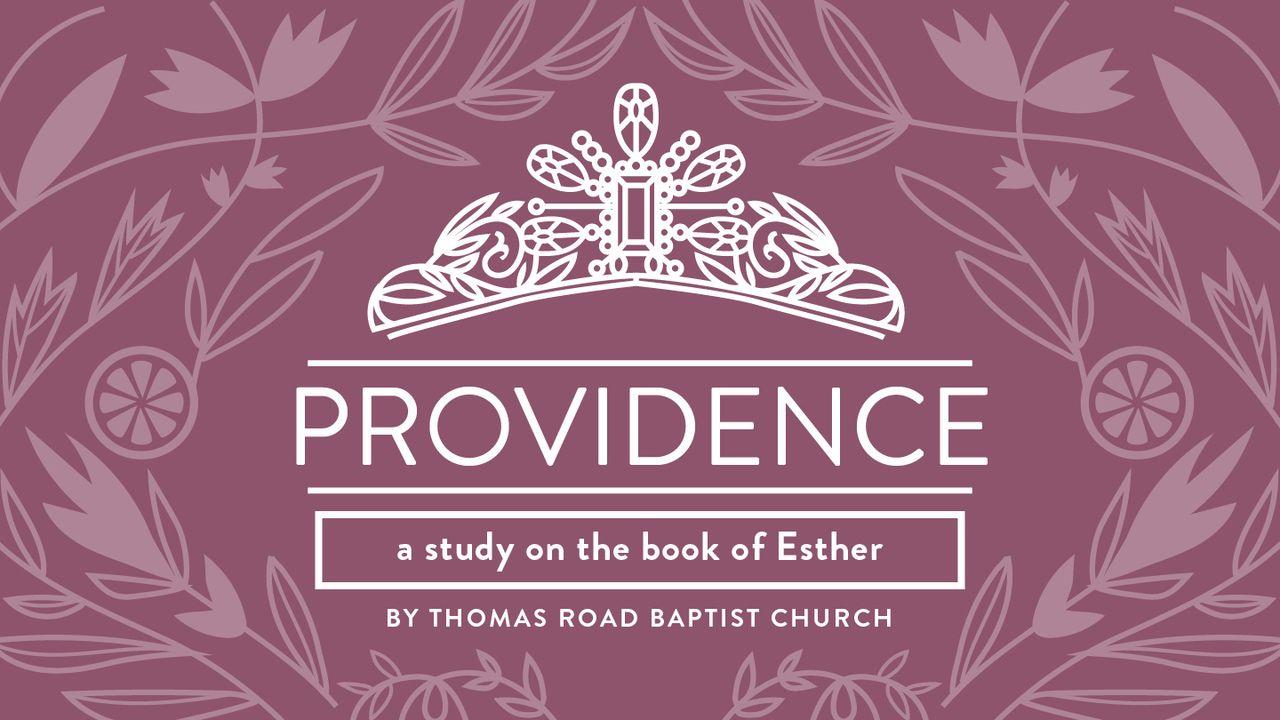Providence: A Study in EstherMuestra

What does it say?
When King Ahasuerus couldn’t sleep, he had the record of his reign read to him. After hearing of Mordecai’s actions, the king decided to honor him, humiliating Haman.
What does it mean?
God was behind the king’s sleepless night. He not only kept the king awake, but He led the king’s servant to the exact passage He wanted Ahasuerus to hear. This is pivotal, as it drastically altered the course of events over the next twenty-four hours. God was looking after His people in general and ensuring Mordecai’s safety, and honoring his faithfulness. Of course, with Mordecai’s blessing came Haman’s public humiliation. Not only did Haman choose how to honor Mordecai, believing it to be for himself, but he was also responsible for seeing that it was carried out.
How should I respond?
God uses divine interruptions to get the attention of His people and to carry out His plans. These interruptions may come in the form of sleepless nights or occur in the middle of the day. Altering our perspective allows us to see these interruptions as possible interventions by God rather than bothersome. How closely do you pay attention to “hiccups” in your day? Consider turning those times when you can’t sleep or when you’re stuck in traffic into prayer. God may use an unexpected change in your routine to pull your focus in a new direction. Today, pay attention!
Escritura
Acerca de este Plan

The book of Esther is set during the period of exile when God's people are scattered across the Persian empire. As nefarious men plot against the Jews, Esther reminds us that even in dark days God is providentially guiding and protecting His people.
More









